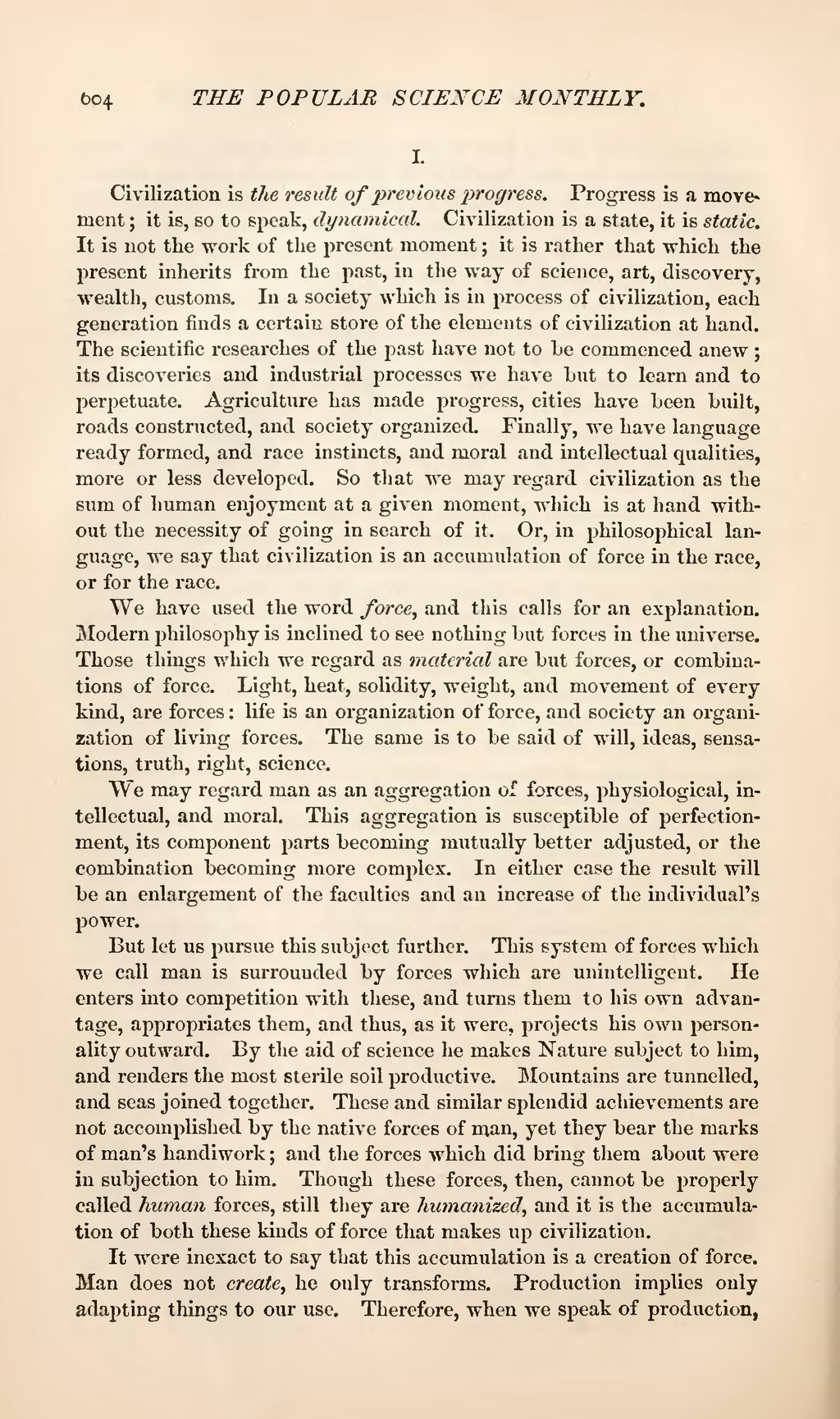I.
Civilization is the result of previous progress. Progress is a movement; it is, so to speak, dynamical. Civilization is a state, it is static. It is not the work of the present moment; it is rather that which the present inherits from the past, in the way of science, art, discovery, wealth, customs. In a society which is in process of civilization, each generation finds a certain store of the elements of civilization at hand. The scientific researches of the past have not to be commenced anew; its discoveries and industrial processes we have but to learn and to perpetuate. Agriculture has made progress, cities have been built, roads constructed, and society organized. Finally, we have language ready formed, and race instincts, and moral and intellectual qualities, more or less developed. So that we may regard civilization as the sum of human enjoyment at a given moment, which is at hand without the necessity of going in search of it. Or, in philosophical language, we say that civilization is an accumulation of force in the race, or for the race.
We have used the word force, and this calls for an explanation. Modern philosophy is inclined to see nothing but forces in the universe. Those things which we regard as material are but forces, or combinations of force. Light, heat, solidity, weight, and movement of every kind, are forces: life is an organization of force, and society an organization of living forces. The same is to be said of will, ideas, sensations, truth, right, science.
We may regard man as an aggregation of forces, physiological, intellectual, and moral. This aggregation is susceptible of perfectionment, its component parts becoming mutually better adjusted, or the combination becoming more complex. In either case the result will be an enlargement of the faculties and an increase of the individual's power.
But let us pursue this subject further. This system of forces which we call man is surrounded by forces which are unintelligent. He enters into competition with these, and turns them to his own advantage, appropriates them, and thus, as it were, projects his own personality outward. By the aid of science he makes Nature subject to him, and renders the most sterile soil productive. Mountains are tunnelled, and seas joined together. These and similar splendid achievements are not accomplished by the native forces of man, yet they bear the marks of man's handiwork; and the forces which did bring them about were in subjection to him. Though these forces, then, cannot be properly called human forces, still they are humanized, and it is the accumulation of both these kinds of force that makes up civilization.
It were inexact to say that this accumulation is a creation of force. Man does not create, he only transforms. Production implies only adapting things to our use. Therefore, when we speak of production,

